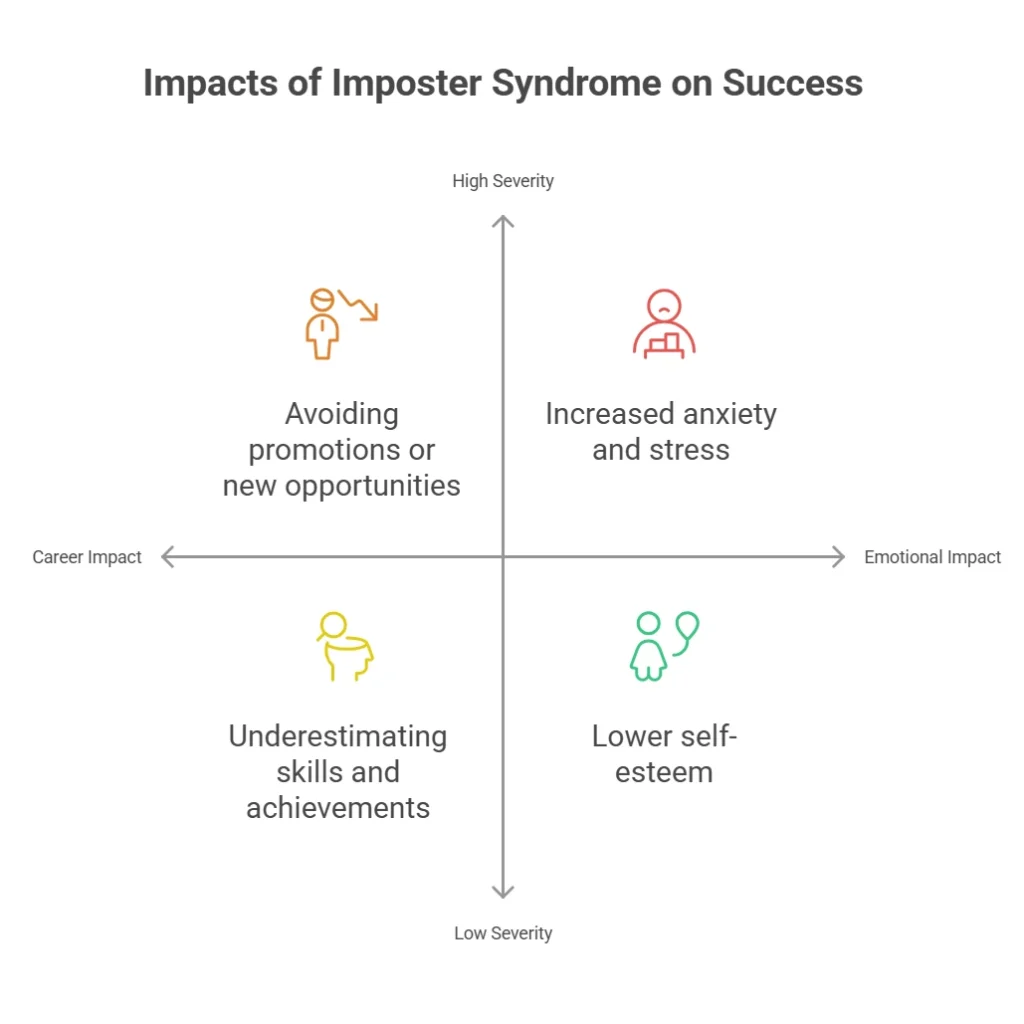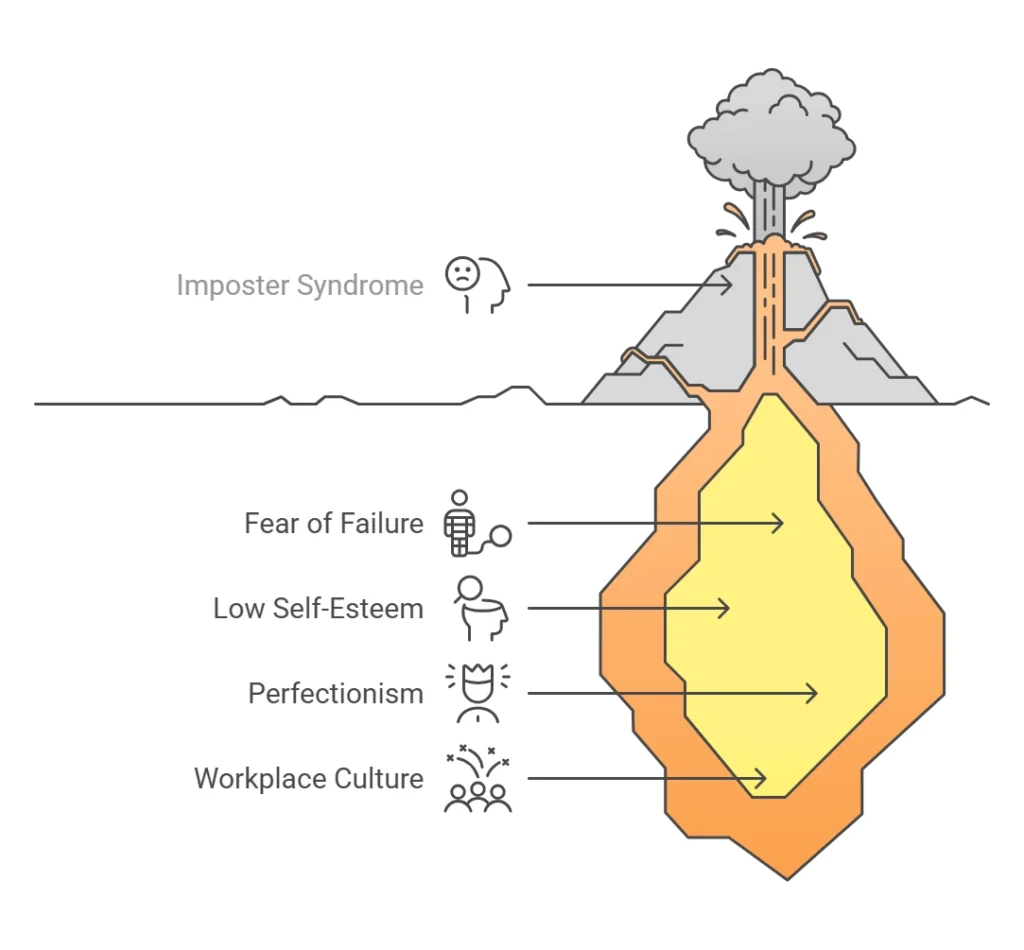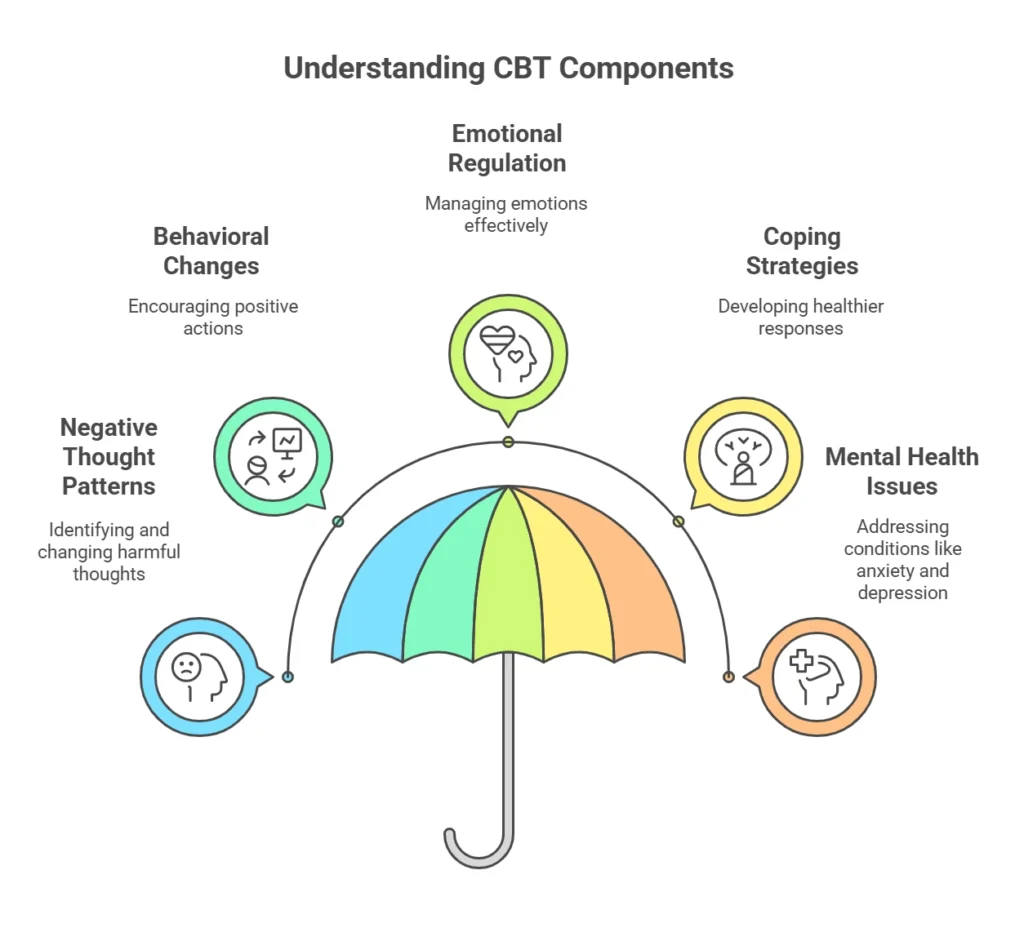Table of Contents
Understanding Imposter Syndrome
What Is Imposter Syndrome?
Definition and Origins:
Crushing imposter syndrome means stopping that voice in your head that says, “I’m not good enough.” Imposter syndrome happens when you believe you don’t deserve your achievements. You might think you got lucky instead of earning success. This feeling was first described by psychologists Pauline Clance and Suzanne Imes in the 1970s.
Common Signs and Symptoms:
- Feeling like you don’t belong
- Attributing success to luck instead of hard work
- Fear of being exposed as a fraud
- Overworking to prove yourself

Who Experiences Imposter Syndrome?
Imposter syndrome can affect anyone, but it’s especially common among high achievers. People in competitive fields, like business, arts, and academia, often feel this way.
Demographics and industries affected include:
- Students and recent graduates
- Professionals in high-stakes jobs
- Creative individuals, like artists and writers
High achievers may be more prone to imposter syndrome because they set high standards for themselves. They often feel pressure to maintain their success, leading to self-doubt.

How Imposter Syndrome Affects Success
Imposter syndrome can have a big impact on your career and confidence. When you doubt yourself, it can hold you back from taking risks or pursuing new opportunities.
Psychological and Emotional Effects:
- Increased anxiety and stress
- Lower self-esteem
- Burnout from overworking
Feeling like an imposter can make you less likely to speak up in meetings or apply for promotions. It’s essential to recognize these feelings and work on overcoming them.
Causes of Imposter Syndrome
Internal Triggers
Perfectionism and Fear of Failure:
Trying to be perfect leads to fear of making mistakes and feeling like you’re not good enough.
Low Self-Esteem and Negative Self-Talk:
Thoughts like “I’m not smart enough” prevent you from moving forward.
External Triggers
Workplace Culture and Societal Pressures:
Competitive work environments and societal expectations can increase self-doubt.
Comparison with Others:
Social media highlights successes, making it easy to feel behind.

Practical Ways to Crush Imposter Syndrome
Reframe Your Thoughts
One of the best ways to overcome imposter syndrome is to challenge negative self-talk. Instead of saying, “I’m a fraud,” try saying, “I’m learning and growing.”
Shifting your mindset can help you see your accomplishments in a new light.
Celebrate Your Achievements
Keeping a success journal is a great way to remind yourself of your accomplishments. Write down your achievements, big or small.
Why acknowledging small wins matters: Celebrating little victories can boost your confidence and help you recognize your worth.
Seek Support and Mentorship
Having a support system is crucial. Talk to friends, family, or colleagues about your feelings.
How mentors can help validate your success: A mentor can provide guidance and reassurance, helping you see your strengths and abilities.
Embrace Lifelong Learning
Instead of fearing your skills gaps, view them as growth opportunities. Learning new things can help you feel more confident in your abilities.
Avoid the “expert trap” mindset, where you think you must know everything. It’s okay to be a beginner!

Building Long-Term Confidence
Practice Self-Compassion
Being kind to yourself during tough times is essential. Letting go of perfectionism can help you feel more at ease with your accomplishments.
Set Realistic Expectations
Setting achievable goals is vital. Break down big tasks into smaller steps, and celebrate each one you complete.
Learning to accept “good enough” can also help reduce pressure.
Visualize Your Success
Visualization techniques can be powerful. Picture yourself succeeding in your goals.
Using affirmations effectively can also boost your confidence. Repeat positive statements about yourself to reinforce your self-worth.

When to Seek Professional Help
Recognizing When Self-Doubt Becomes Harmful
Sometimes, self-doubt can become overwhelming. Red flags indicating deeper issues include:
- Persistent feelings of inadequacy
- Difficulty functioning in daily life
- Increased anxiety or depression
How Therapy Can Help Crush Imposter Syndrome
If you find it hard to cope, consider seeking help. Cognitive Behavioral Therapy (CBT) techniques can help you challenge negative thoughts and build confidence.
Finding the right mental health support can make a big difference in overcoming imposter syndrome.


